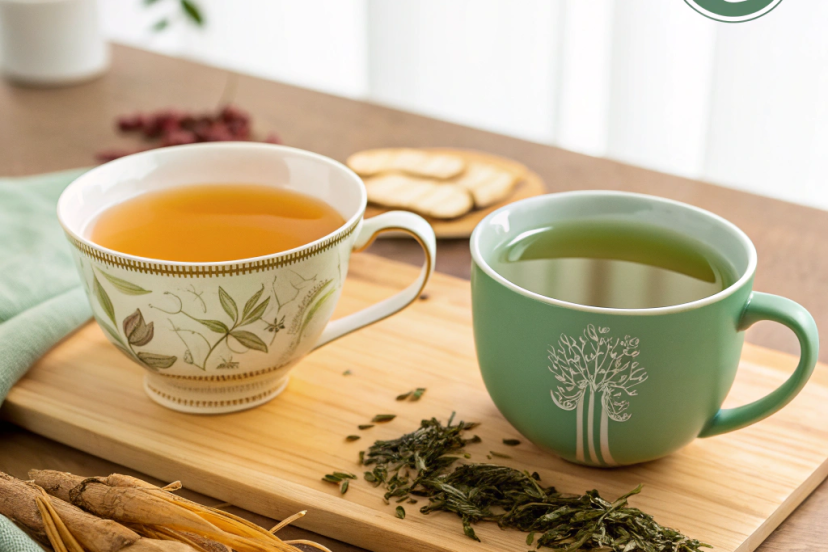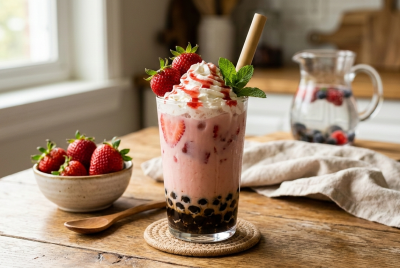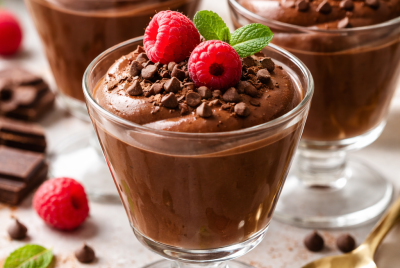Ginseng Tea vs Green Tea: Which One Should You Choose?
When it comes to choosing the perfect cup of tea, most of us find ourselves torn between traditional favorites and herbal powerhouses. Two popular options often compared are ginseng tea and green tea. Both carry rich histories, unique flavors, and impressive health benefits. But when it comes down to it—ginseng tea vs green tea—which one should you choose? Let’s dive in.
What is Ginseng Tea?
Ginseng tea is an herbal infusion made from the root of the ginseng plant. Native to Asia and North America, ginseng has been prized for centuries in traditional Chinese and Korean medicine for its ability to boost energy, improve focus, and strengthen the immune system.
The tea itself can be made by steeping dried ginseng root slices or using powdered ginseng. Its flavor is earthy, slightly bitter, and sometimes sweet depending on how it’s prepared.
What is Green Tea?
Green tea, on the other hand, comes from the leaves of the Camellia sinensis plant—the same plant used for black tea and oolong tea. The difference lies in the minimal oxidation process, which keeps green tea lighter in flavor and richer in antioxidants like catechins.
Green tea has a grassy, slightly astringent taste and is consumed daily across the globe, especially in countries like China and Japan.
Related article: From Japan to Your Mug: The Best Green Teas You Need to Try
Nutritional Comparison: Ginseng Tea vs Green Tea
Both teas offer unique nutritional profiles:
- Ginseng Tea: Contains ginsenosides (active compounds that enhance energy, focus, and immune health). Low in calories and naturally caffeine-free unless blended with other teas.
- Green Tea: Rich in antioxidants, especially epigallocatechin gallate (EGCG), known for fighting oxidative stress, improving brain health, and supporting weight management. Contains caffeine (less than coffee, but enough to provide an energy boost).
Health Benefits of Ginseng Tea
- Boosts Energy Naturally – Helps fight fatigue without caffeine crashes.
- Supports Immune Function – Traditional medicine often used it to prevent colds and infections.
- Improves Cognitive Function – May enhance memory, focus, and concentration.
- Reduces Stress – Acts as an adaptogen, helping the body manage stress more effectively.
Related articles:
How to Get Rid of Brain Fog During Menopause
Why Ashwagandha Gummies Are Revolutionizing Stress Relief
16 Proven Health Benefits of Manuka Honey You Need to Know
Health Benefits of Green Tea
- Rich in Antioxidants – Helps fight free radicals and reduce cell damage.
- Supports Weight Loss – Boosts metabolism and fat burning.
- Enhances Brain Function – Contains L-theanine (an amino acid) plus caffeine for calm focus.
- Promotes Heart Health – Linked to lower cholesterol and improved blood flow.
Related article: From Japan to Your Mug: The Best Green Teas You Need to Try
Taste & Flavor Profile
- Ginseng Tea: Earthy, slightly bitter, with sweet undertones (especially when mixed with honey).
- Green Tea: Light, grassy, sometimes slightly astringent. Can vary widely depending on origin and processing.
If you prefer something warming and herbal, ginseng tea may be your go-to. But if you love a refreshing, slightly grassy brew, green tea is unbeatable.
Caffeine Content
- Ginseng Tea: Naturally caffeine-free (great for evenings or people sensitive to caffeine).
- Green Tea: Contains about 30–40 mg of caffeine per cup (less than coffee, but enough for an energy kick).
When Should You Drink Ginseng Tea vs Green Tea?
- Ginseng Tea: Ideal in the evening or when you want to relax and recharge without caffeine.
- Green Tea: Perfect in the morning or afternoon for a gentle energy boost and increased focus.
Weight Loss and Metabolism
If your goal is weight management, green tea has the upper hand thanks to EGCG and its metabolism-boosting effects. However, ginseng tea may indirectly help by improving energy levels and reducing stress-related eating.
Related articles:
25 Scientific Health Benefits of Turkish Coffee
10 Low-Carb Smoothies for Weight Loss (Keto Recipes)
32 Foods That Burn Belly Fat Fast | What Science Says
Cabbage Juice: Benefits + 10 Recipes for Weight Loss
Best Dietary Supplements for Women’s Weight Loss
Skin Health: Which is Better?
- Ginseng Tea: Promotes collagen production and fights inflammation—great for glowing skin.
- Green Tea: Rich in antioxidants that combat acne, reduce redness, and protect against UV damage.
Both teas are skin-friendly, but green tea is more widely studied in skincare benefits.
Potential Side Effects
- Ginseng Tea: Overconsumption may cause insomnia, nervousness, or digestive issues in sensitive people.
- Green Tea: Excessive intake may lead to caffeine-related side effects like jitters, insomnia, or stomach upset.
Moderation is key with both teas.
Cultural Significance
- Ginseng Tea: Deeply rooted in traditional Asian medicine, often used ceremonially in Korea.
- Green Tea: Central to Japanese tea ceremonies and Chinese daily life for centuries.
Related article: From Japan to Your Mug: The Best Green Teas You Need to Try
Buying Guide: How to Choose the Best Tea
When shopping for either ginseng tea or green tea, quality matters. Here’s what to look for:
For Ginseng Tea:
- Type of Ginseng – Korean red ginseng is considered the most potent, while American ginseng is milder.
- Form – Available as dried root slices, powder, tea bags, capsules, or extracts.
- Purity – Avoid blends with too many additives or sweeteners.
For Green Tea:
- Origin – Japanese varieties (like matcha and sencha) are highly prized; Chinese varieties (like dragon well) are also excellent.
- Processing – Loose leaf teas generally have better quality than tea bags.
- Freshness – Look for vibrant green leaves and avoid stale or brownish teas.
Price Comparison
- Ginseng Tea: Often more expensive due to the slow growth of ginseng roots (can take years to mature).
- Green Tea: More affordable and widely available, though premium matcha can be pricey.
Which One Should You Choose?
The choice between ginseng tea and green tea depends on your lifestyle and goals:
- Choose Ginseng Tea if you want a caffeine-free, adaptogenic drink that boosts energy naturally, improves stress response, and enhances immune function.
- Choose Green Tea if you’re looking for a daily antioxidant-rich beverage that supports weight management, brain health, and heart wellness.
For many people, alternating between the two depending on the time of day can be the best approach.
Conclusion: Ginseng Tea or Green Tea?
So—ginseng tea vs green tea, which one should you choose? The answer is: why not both? Ginseng tea shines in relaxation, immunity, and stress support, while green tea excels in energy, antioxidants, and weight management. By understanding their strengths, you can enjoy the best of both worlds.
FAQs About Ginseng Tea vs Green Tea
1. Can I drink ginseng tea and green tea in the same day?
Yes! Many people enjoy green tea in the morning and ginseng tea in the evening for a balanced routine.
2. Is ginseng tea good for weight loss like green tea?
Not directly. Green tea has more research supporting weight management. However, ginseng tea may help indirectly by boosting energy and reducing stress eating.
3. Which tea is better for sleep?
Ginseng tea is better since it’s caffeine-free, while green tea may keep you awake if consumed late.
4. Can I drink green tea every day?
Yes! Most studies recommend 2–3 cups daily for maximum benefits, though moderation is important to avoid caffeine overload.
5. Is ginseng tea safe for everyone?
Generally, yes, but pregnant women, people on certain medications (like blood thinners), or those with medical conditions should consult a doctor before regular use.






